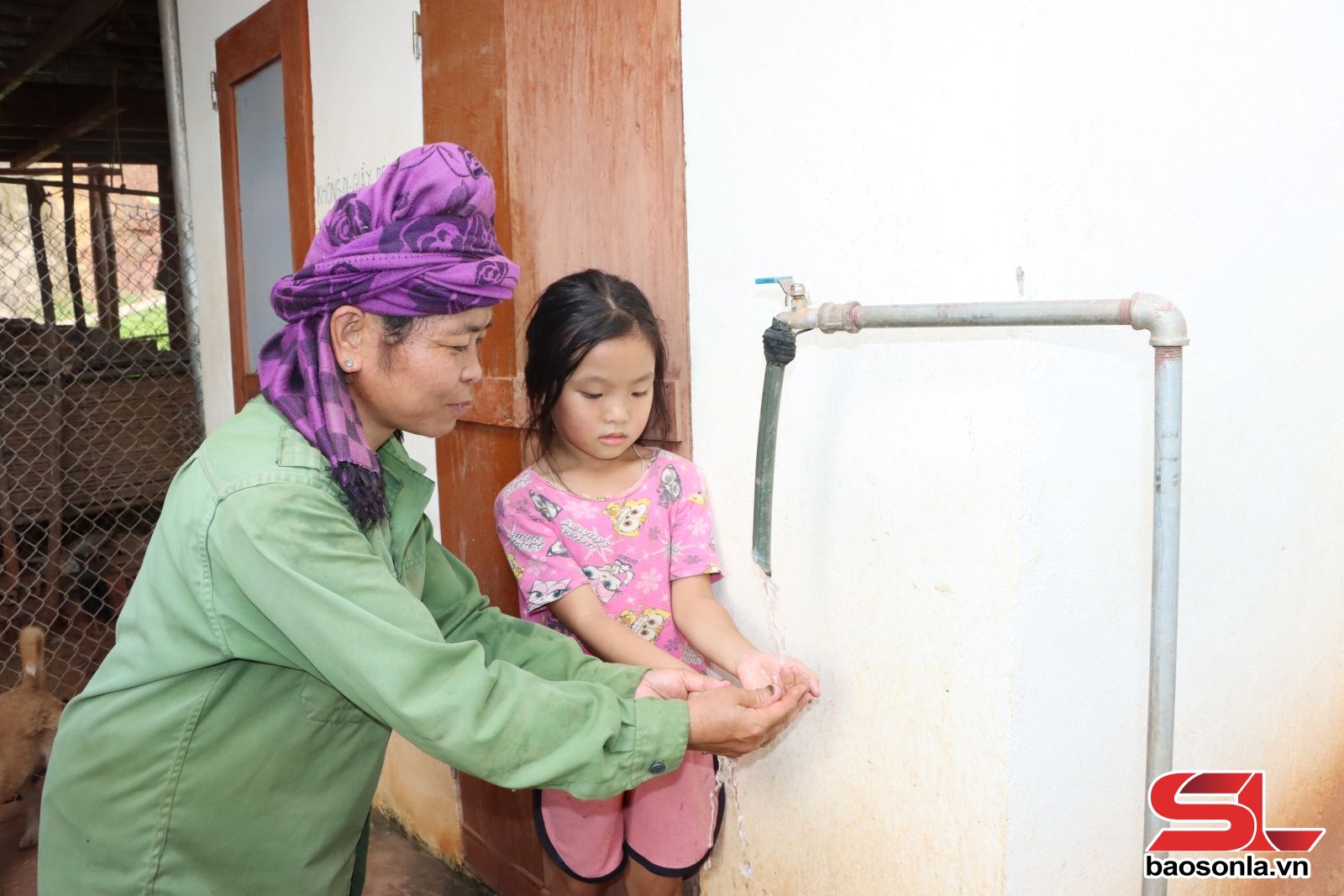.jpg)
Pau hamlet, Muong Bu commune, is home to nearly 100 households. In the past, local residents often faced a shortage of clean water. Thanks to funding from the programme, a water supply project worth nearly 800 million VND (30,308 USD) was implemented. Lo Thi Lan, a resident of Pau hamlet, shared: “The 2019 flood washed away our old water system, leaving us without water for years. We had to fetch water from streams or buy it in cans during the dry season. Now, with the newly built clean water system bringing water directly to our homes, everyone in the hamlet is delighted.”
In Yen Chau commune, a survey revealed that over 1,000 ethnic minority households needed access to decentralised water supply, and several highland hamlets still faced a shortage of clean water. People mainly relied on streams and underground sources, and during the dry season, many households had to travel several kilometers to fetch water. Some families attempted to dig wells, but due to the mountainous terrain, they couldn’t reach groundwater.
To address this issue, local authorities mobilised resources to build water tanks, extend pipelines from lowlands to highland hamlets, and guided people on how to save water and store rainwater for the dry season. Thanks to support from Project 1 for decentralised water supply, many households received water storage tanks, helping ensure access to clean water for daily use.
Truong The Anh, head of the Economic Office of Yen Chau commune, stated: “We reviewed the needs of ethnic minority households and combined funding sources to provide water storage tanks. To date, 100% of the budget has been disbursed, and 1.5-cu.m tanks have been delivered, meeting technical and quality standards. Since 2022, more than 1,000 ethnic minority households in the commune have received support, with a total budget of nearly 3 billion VND.”

Ethnic minority people in Yen Chau commune have access to hygienic water.
The shortage of clean water has become an urgent issue for ethnic minority communities in the province, especially during the dry season, when many families are forced to use unsafe water sources, leading to disease outbreaks and serious health impacts. The province has focused on implementing Project 1 to provide clean water and sustainable infrastructure, not only improving living conditions but also promoting sustainable development in disadvantaged areas.
According to Nguyen Viet Hung, Director of the provincial Department of Ethnic and Religious Affairs, said that through resources allocated from the project addressing land, housing, production land, and clean water shortages, over 145 billion VND has been disbursed. The province has built, upgraded, and repaired 94 clean water facilities and provided water storage tanks for nearly 1,400 households, with a total value exceeding 4.1 billion VND. This has largely addressed the water shortage issue and met the urgent needs of the people, helping ethnic minorities improve their quality of life.
To ensure that ethnic minority people have access to hygienic water, the Department of Ethnic and Religious Affairs continues to advise the provincial People’s Committee in proposing solutions to the central government to remove bottlenecks. It also coordinates with localities to review and evaluate water supply projects and continues investing in water systems for ethnic minority areas. Additionally, it strengthens communication, education, and advocacy to raise awareness and promote behaviour change regarding water conservation and protection of water supply infrastructure. The goal is that by the end of 2025, 100% of the rural population and 98% of ethnic minority people will have access to hygienic water.
Thanks to funding from the programme, clean water supply systems have been installed across most ethnic minority areas in the province. Many old facilities have been repaired and upgraded to meet water quality standards and protect public health. Notably, newly constructed systems have increased capacity and expanded supply networks to nearby residential areas, bringing hygienic water to even remote border hamlets and isolated mountainous regions.























You have 500/500 characters left
Please enter 5 or more characters!!!